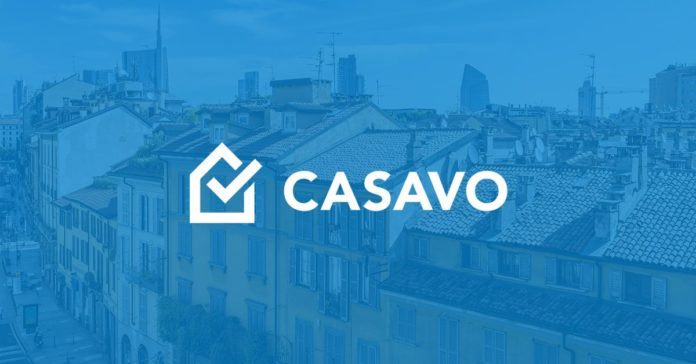 Luigi Di Maio, the Italian Ministry for Labor and Economic Development, said that a National Innovation Fund (Fondo Nazionale Innovazione) will be launched with a dry powder of one billion euros and that tax reliefs provided by the Italian 2019 Budget Law will bring another billion euros to the Italian venture capital ecosystem (see here a previous post by BeBeez).
Luigi Di Maio, the Italian Ministry for Labor and Economic Development, said that a National Innovation Fund (Fondo Nazionale Innovazione) will be launched with a dry powder of one billion euros and that tax reliefs provided by the Italian 2019 Budget Law will bring another billion euros to the Italian venture capital ecosystem (see here a previous post by BeBeez).
Casavo, an Italian proptech platform for instant buying real estate assets, closed a series A fundraising worth 7 million of euros (7.9 million of US Dollars) (see here a previous post by BeBeez). Project A Ventures, a Berlin based venture capital fund, acted as lead investor. Casavo received resources also from Picus Capital, 360 Capital Partners, Kervis Asset Management, Boost Heroes (the investment holding of Fabio Cannavale), Marco Pescarmona (the founder and chairman of listed Gruppo MutuiOnline) and Rancilio Cube, the family office of the eponymous family. Giorgio Tinacci, ceo of Casavo, and Anton Waitz, general partner of Project A Ventures, said that the company will invest such proceeds in developing the business in Italy and Southern Europe. Simon Specka is the cofounder of Casavo.
ClubDealOnline, the equity crowdfunding portal for HNWI (high net worth individuals), family offices and institutional investors, started the so-called 1Q2019 campaign for scale up startups, with a fundraising target of 3 million of euros (see here a previous post by BeBeez). iStarter, the London-based Italian accelerator that is partner of ClubDealOnline, selected three startups for 1Q2019: Vasc and Eucardia, two producers of medical devices, and Blimp, a digital platform for monitoring outdoor advertising spaces.
Habacus, a startup that received support from the incubator H-Farm and that provides services for gaining scolarships, signed a partnership with Intesa Sanpaolo for the issuance of loans to outstanding students (see here a previous post byBeBeez). Paolo Cuniberti founded Habacus in 2017.
PlayWood, a furniture startup, raised 450k euros from LVenture Group, Barcamper Ventures, Angel Partner Group – APG, and further business Angels (see here a previous post by BeBeez). Stefano Guerrieri (ceo), Carlotta Nizzoli, and Mirco Bonilauri founded PlayWood that has sales of 0.4 million posting a 25% monthly growth.
Fondazione Golinelli started the activities of Bologna based startups incubator and accelerator G-Factor (see here aprevious post by BeBeez). Marino Golinelli created FG. Antonio Danieli, the general manager of FG and the ceo of G-Force, said that the firm shortlisted the following 9 startups: Biocompatibility Innovation, a Padua based startup for the developmentof new technologies for the improvement of the biocompatibility degree of biological implantable medical devices and animal food. BionITLabs, a producer of innovative protheses; ComplexData, a spin-off of Milan University that manages big dataset; Diamante, a spin-off of Verona University that produces medical devices; enGenome, a spin-off of Pavia University that develops data analysis for the medical and pharmaceutical sector; Genoa Instruments, a spin-off Istituto Italiano di Tecnologia di Genova, that provides imaging solutions; HIPatch, a startup of Pavia University; Holey, a Rome-based startup that produces 3d-printed protheses with eco-friendly materials; Relief, a spin-off of Scuola Superiore Sant’Anna that produces medical devices.
The tiny Italy-enclaved autonomous Republic of San Marino regulated the blockchain sector (see here a previous post by BeBeez). San Marino Cabinet for Industry and San Marino Innovation Agency actually issued the Blockchain Delegate Decree, which both recognize the blockchain technology and regulates the issue of two categories of digital tools (tokens): the utility tokens (which allow future access to products and services offered by a company and, therefore, they do not constitute an investment nor are they subject to the rules of investment activities) and the investment tokens (security tokens or digital instruments whose value derives from an underlying asset, ie shares, participative financial instruments and debt securities of the issuer, which may be exchanged). Italy in turn a few days ago converted into Law the so-called Simplification Decree including a measure which outlines for the first time in the Italian law the concept of blockchain and smart contract, thus assigning them legal validity (see here a previous post by BeBeez). However the new Italian law does not mention ICOs (Initial Coin Offering) or ITOs (Initial Token Offerings).


